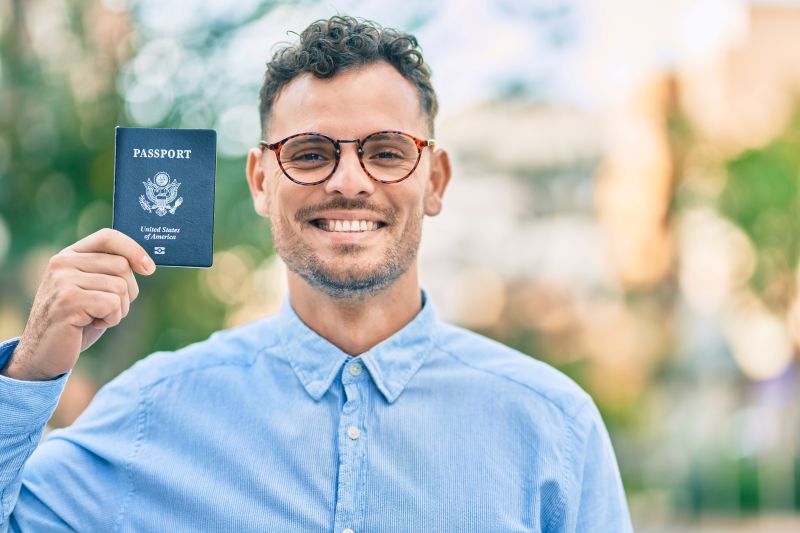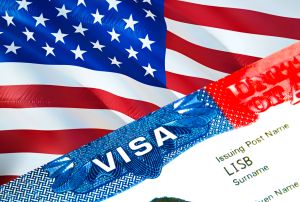The E-2 treaty investor Visa offers exciting opportunities for entrepreneurs and their families. While launching a business takes center stage, family needs are just as important. Can they build a life here, too? Absolutely—and knowing how makes all the difference.
This guide explains what spouses and children of E-2 Visa holders can do in the United States. It focuses on employment rights, access to education, and common challenges faced by families.
Background Of The E-2 Visa
The E-2 Treaty Investor Visa is for citizens of treaty countries who make a substantial investment in a U.S. business. It’s for those who actively participate in a company, not passive investors. You must show ownership and active control over the business operations.
Your investment must be substantial relative to the business type. There’s no fixed dollar amount, but it can’t be minimal or marginal. The money must be “at risk,” meaning already committed. Planning alone won’t qualify without money actively invested.
The E-2 is a non-immigrant Visa, so it doesn’t lead directly to permanent residency. However, investors can renew it as long as the business continues to operate. Many use it to live in the U.S. legally and successfully for years.
Spouses and children under 21 may join the investor as dependents. They receive the E-2 classification that allows them to live in the U.S. Their rights differ slightly but are tied to the principal’s E-2 Visa holder’s legal Visa status. That relationship matters.
The E-2 dependents rely on the investor. If the investor loses their Visa or falls out of status, dependents do, too. This makes it critical for families to understand how benefits and risks apply to each member living under the E-2 Visa.
Rights Of E-2 Visa Spouses
E-2 Visa spouses can live, study, and work anywhere in the U.S. They can stay as long as the primary investor maintains a valid status. Employment opportunities have expanded recently, making it easier for spouses to build independent careers.
Employment Authorization
As of 2021, spouses of E-2 Visa holders are eligible to work. They no longer need to apply separately if their I-94 record labels them as “E-2 spouse.” That detail is critical for employment eligibility under current immigration enforcement rules.
If the I-94 doesn’t reflect the correct status, spouses must file for an Employment Authorization Document (EAD). It can delay things, so checking I-94 records is a smart first step. They can request corrections through USCIS or make them when re-entering the U.S.
Once authorized, spouses can work for any employer or even start their own business. They’re not tied to the investor’s company. This flexibility allows many families to create dual-income households or pursue different careers or financial paths for long-term stability.
Jobs in healthcare, education, tech, or service industries are all on the table. There’s no restriction on the type of job they can pursue. Spouses are treated much like any other legal worker with open employment authorization in the country.
Educational Opportunities
Spouses of E-2 holders can also go to school. They don’t need a student Visa. They can pursue degrees and certifications or take short classes for fun. Learning is a legal option without restrictions on study hours or academic intensity.
Enrollment can be full-time or part-time. Spouses can attend community colleges, universities, or online programs. This can help spouses adapt faster, earn credentials, or build social connections in their new environment. It gives them access to personal and professional development options.
Spouses’ Visa status doesn’t change because of their education. They don’t risk falling out of status by enrolling. However, once their E-2 status ends, they must leave or change Visas—whether for further study, employment, or family-based status.
Spouses enjoy a great deal of freedom under E-2 rules. Understanding their rights creates opportunities. Now, give focus on the children. Their situation is different. Parents should plan carefully for their children’s educational paths and immigration transitions before they turn 21.
Rights Of E-2 Visa Children
Children under 21 can accompany their E-2 parents to the U.S. as dependents. They receive a similar E-2 classification, allowing them to live and study here. However, they do not have the same work privileges as E-2 Visa spouses.
Academic Opportunities
Children of E-2 Visa holders may attend any public or private school. There’s no need to apply for a separate F-1 Visa unless they reach the age of 21. It saves families time and simplifies school enrollment nationwide across the entire education system.
They can attend kindergarten through high school like any U.S. resident. Many also enroll in colleges or universities. However, access to in-state tuition or scholarships may depend on the state or school policies. Families should ask early for those requirements.
Private schools often have no restrictions, but financial aid is limited. At the college level, E-2 dependents are usually classified as international students. It can mean higher tuition and fewer financial aid options unless they meet residency or exception criteria for in-state students.
Many families apply for an F-1 student Visa once the child finishes high school. That shift keeps their education on track and allows them to work part-time during school. It’s a transition for E-2 dependents planning to continue college in the U.S.
Employment Restrictions
Unlike spouses, children under 21 are not allowed to work under E-2 status. That includes internships, part-time jobs, or self-employment. Even unpaid internships that offer value can trigger status issues and create trouble for otherwise compliant families.
A child must change to a different Visa to work legally. Common options include an F-1 Visa (for students with work authorization) or an H-1B Visa (for employment). Each has its application process, rules, and limitations that families should understand in advance.
When a child turns 21, their dependent E-2 status expires. Then, they must switch to another Visa or leave the country. Planning helps avoid gaps in legal status, school disruptions, or rushed applications to maintain a lawful stay.
Knowing these limits helps families avoid surprises and plan their children’s academic futures more effectively. Now, look at the common questions families ask about E-2 Visa rights for dependents.
Questions About The E-2 Investor Visa
Families considering the E-2 Visa often have many questions about what life in the U.S. will be like. From work permits to children’s education, understanding each rule helps avoid problems later. These frequently asked questions cover some common concerns.
Can E-2 Visa Spouses Start Their Own Business In The U.S.?
Yes, once their I-94 confirms E-2 spouse status. They can legally open a business, hire workers, and manage day-to-day operations. There are no restrictions on the type of business they can run, and they’re not tied to their spouse’s company.
Do E-2 Children Need To Apply For A Student Visa To Attend School?
Children under 21 can study without switching Visas. However, once they turn 21, they will need to change to another Visa, such as an F-1. They must act if they want to continue their education without interruption or risk of losing their status.
What Happens To Dependents If The E-2 Holder Loses Their Status?
If the investor loses status, their family does too. Dependents must either switch to another legal Visa category or leave the U.S. promptly. That’s why it’s vital to monitor Visa expiration dates and always maintain compliance with E-2 requirements.
Are There Any Travel Restrictions For E-2 Dependents?
E-2 dependents can travel, but they must maintain proper documentation to do so. They need valid Visas and proof of their dependent status. Reentry can be denied if their paperwork isn’t in order, so checking everything before leaving the country is highly recommended.
Can E-2 Dependents Apply For Permanent Residency?
Not through the E-2 Visa directly. However, they may qualify for a green card through other paths, such as employer sponsorship, marriage, or family petitions. Each has its own specific rules and timelines; many families consult with attorneys to explore these options.
These answers provide a quick reference, but they aren’t a substitute for personal legal advice. See how Lozano Law Firm helps families move forward in their immigration journey.
Lozano Law Firm Assists E-2 Investors & Their Dependents
At Lozano Law Firm, we help E-2 investors and their families remove the guesswork from immigration. We focus on clarity, quick communication, and getting things right the first time. Families trust us with their future because we treat each case with care.
We handle E-2 applications, extensions, and filings for dependents. That includes getting spouses’ employment authorization and helping children prepare for school transitions or changes to their Visas. We also flag issues before they become problems, especially during renewals and travel.
Our team takes the time to explain the process clearly, using straightforward answers. Whether you’re applying for the first time or seeking to renew, we’ll help every step of the way. We don’t rush cases or take shortcuts. We build strategies based on your goals and stand by you through every stage of the journey.
Spouses of E-2 Visa holders can work and study freely in the United States. Children under 21 may attend school, but they cannot work unless they change their Visa status to one that allows work. Turning 21 requires a status update or a new Visa to remain legal.
Lozano Law Firm is here to guide you through every decision, application, and renewal. We help families build lasting solutions with trusted immigration support. From Laredo to anywhere your plans take you, we’re ready to support what’s next—confidently and clearly.
Download Our E-2 Guide
Navigating The E-2 Treaty Investor Visa





